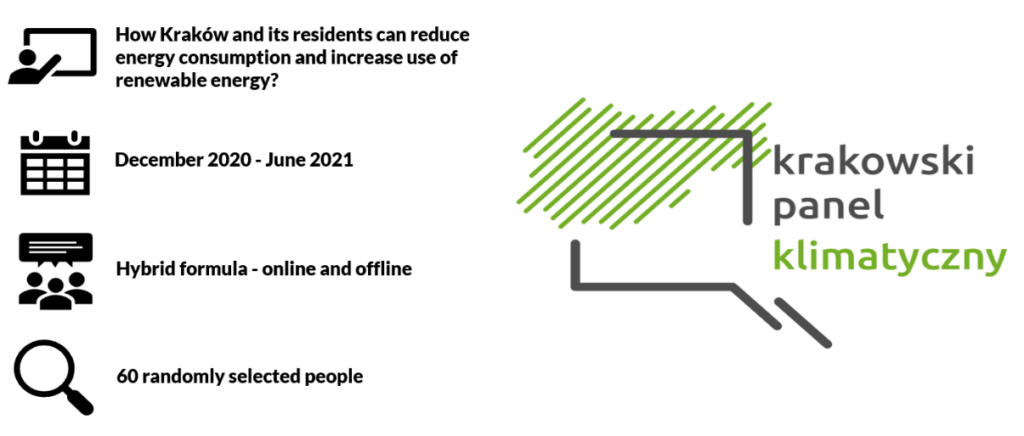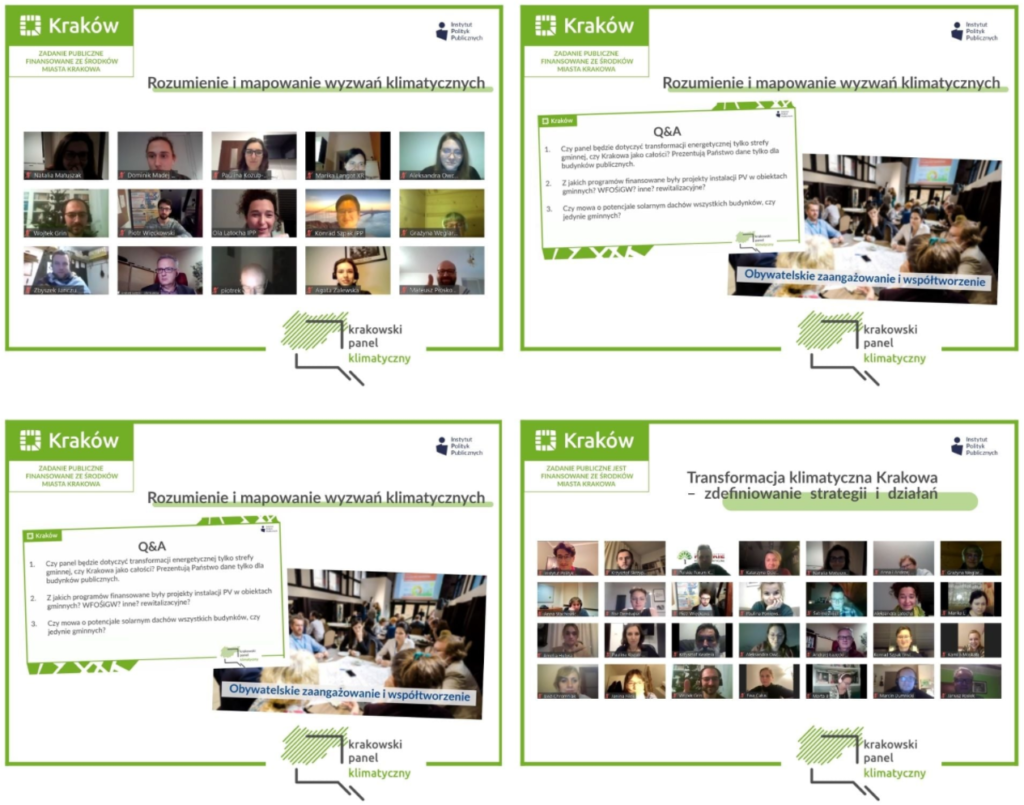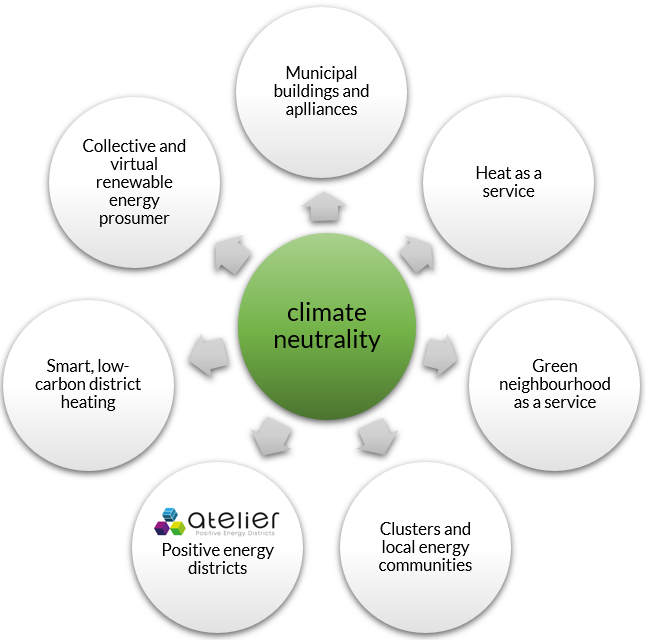Krakowski Panel Klimatyczny is a form of deliberative democracy. It is a way of making important decisions by a randomly selected group of local citizens, whose role is an in-depth analysis of a given matter, a deliberation over different solutions and help in making rational decisions, taking into account the common good. This group is intended to reflect the general population – the members are chosen in terms of demographics, such as age, gender, place of residence and education level. The essence of the citizens’ assembly is to develop recommendations based on the best available knowledge and after getting acquainted with the views of all interested parties.
Kraków decided to organise this assembly on climate change, because its ultimate goal is to become a zero-emission city. The city wants to achieve this aim as soon as possible under conditions of a fair, effective and socially acceptable transformation. However, it is not possible without appropriate national regulations and programmes, but also involvement of the local community: residents, social entities, entrepreneurs and the scientific community.

Figure 1. Kraków Citizens’ Assembly on Climate
The aim of Kraków Citizens’ Assembly on Climate is to answer the question: How can the City and its residents reduce energy consumption and increase the use of renewable energy? Kraków decided to focus on this topic, because the annual emission of CO2 in Kraków is 5.1 million tons, of which the vast majority come from heating and consumed electricity. Ambitious actions can reduce emissions about 25% in 2030. Actions in the sector of buildings and electricity have a huge reduction potential – they are responsible for 81% of reduction!

Figure 2. Public consultations with all interested residents took place online. Credits: IPP
Before the Assembly had started recruiting for panelist, public consultations took place. Over 200 people had participated in information meetings and workshops and over 300 comments were collected – in further work on the panel, the organisers will take into account all the suggestions. They also received 160 art works from children participating in the competition „Children create for the climate”!
As part of these meetings, all interested residents could listen to presentations about climate transformation, citizen engagement as well as buildings and energy sector. Speeches were delivered by specialist, such as Andrzej Łazęcki, leader of city’s climate projects and Deputy Director of Public Services Department of Municipality of Kraków and Marcin Popkiewicz, megatrend analyst, educator and author of best-selling books about climate changes.
During the consultations, the residents could learn about the climate, pilot projects as well as Krakow’s climate strategy. The lively discussions showed that residents are becoming more and more aware of their role in the fight against climate change!
As part of the Krakowski Panel Klimatyczny, of course, ATELIER was also presented regarding the proposals for activities in the buildings and energy sector energy – as one of them is the development of Positive Energy Districts as part of ATELIER!

Figure 3. Examples of solutions in buildings and Energy sector in Kraków.
What is next? In the mailboxes of 20,000 citizens, there was an invitation to participate in the panel. People that are interested can register, and 60 panelist will be selected from among all candidates. Kraków started the „#takepart” („#weźżeudział”) campaign, in which the city encourages citizens, together with famous people, to take part in the citizens’ assembly and to take up the challenge of changing Kraków for the better.
After the end of Krakowski Panel Klimatyczny, the city will receive a report that will help it in its climate transformation. And that’s all thanks to the citizens – because together, we can do more!

Figure 4. On the occasion of Kraków Citizens’ Assembly on Climate, several buildings in the City were highlighted in green for one night. Credits: Wiesław Majka/Kraków Municipality